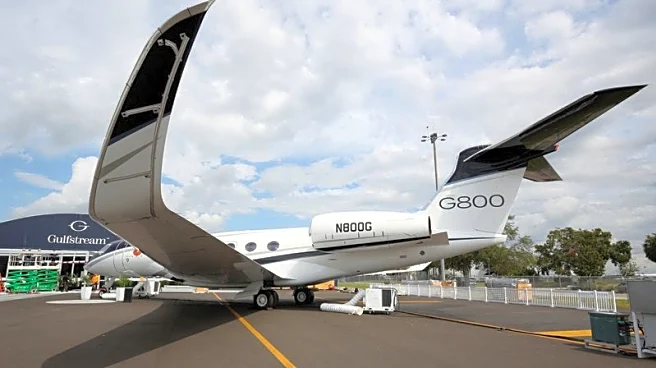What's Happening?
U.N. Secretary-General Antonio Guterres is set to deliver a comprehensive report on the future of U.N. peace operations in early 2026. This report follows a year of intense debate over the relevance and viability of the U.N.'s peace-support mechanisms, particularly in light of budget constraints and a shifting international peace and security landscape. Several U.N. peace missions have already closed or are scheduled to close soon. A notable aspect of this discussion is the underappreciated role of maritime peacekeeping operations, highlighted by the 'United Nations Peacekeeping Mission Maritime Task Force Manual' published in March. Despite its technical nature, the manual underscores the growing importance of maritime operations due to increasing incidents of maritime violence and the global dependency on the seas for trade, energy, and communication.
Why It's Important?
The focus on maritime peacekeeping is crucial as 80% of international trade relies on maritime routes, and two-thirds of the world's oil and gas supplies are transported by sea. Additionally, 99% of global communications depend on undersea cables. The expansion of renewable energy sources, such as offshore wind farms, further emphasizes the need for secure maritime operations. As geopolitical and geo-economic shifts continue, the U.N.'s ability to adapt its peacekeeping strategies to include maritime operations could significantly impact global stability and economic security. The report by Guterres may influence future policy decisions and resource allocations within the U.N., potentially affecting international trade and energy security.
What's Next?
The upcoming report by Secretary-General Guterres will likely prompt discussions among U.N. member states regarding the allocation of resources and strategic priorities for peacekeeping operations. Stakeholders, including international trade organizations, energy companies, and communication networks, may advocate for increased focus on maritime security to protect their interests. The U.N. may need to consider innovative funding solutions to address budget shortfalls while expanding its maritime peacekeeping capabilities. The evolving geopolitical landscape may also lead to new partnerships and collaborations aimed at enhancing maritime security.
Beyond the Headlines
The emphasis on maritime peacekeeping operations highlights broader ethical and legal considerations, such as the protection of international waters and the rights of nations to access and utilize maritime resources. The U.N.'s approach to maritime security could set precedents for international law and cooperation in safeguarding global commons. Additionally, the focus on maritime operations may drive technological advancements in surveillance and monitoring systems, contributing to long-term shifts in how peacekeeping missions are conducted.










